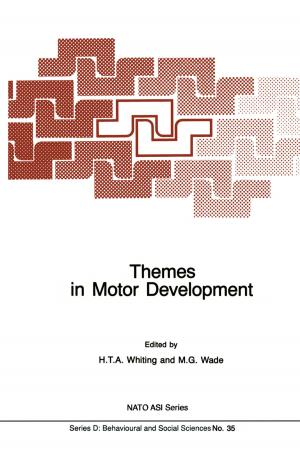Mapping the Social Consequences of Alcohol Consumption
Nonfiction, Social & Cultural Studies, Social Science, Sociology, Health & Well Being, Psychology| Author: | ISBN: | 9789401597258 | |
| Publisher: | Springer Netherlands | Publication: | March 14, 2013 |
| Imprint: | Springer | Language: | English |
| Author: | |
| ISBN: | 9789401597258 |
| Publisher: | Springer Netherlands |
| Publication: | March 14, 2013 |
| Imprint: | Springer |
| Language: | English |
Research on alcohol-related consequences has traditionally focused mainly on health aspects of alcohol consumption or effects which can be more easily quantified or measured. It is evident that alcohol has many consequences which can be characterised as `social' in nature and which are not, or not only, medical and are directly health-related. Such consequences include violence, crime, and psychosocial factors. The increasing relevance of consequences of alcohol consumption other than medical is also reflected in the second European Action Plan 2000-2004 of WHO, aiming at the prevention and reduction of harm done by alcohol to the health and wellbeing of individuals, families, and communities.
This book attempts to provide a comprehensive overview of social consequences of alcohol consumption on the individual, group, organisational, and societal level. It is a result of a two-year collaborative study under the leadership of WHO-Euro with the participation of alcohol researchers from Finland, Germany, Norway, Scotland, and Switzerland. Although the book was written by experts in the field, it is targeted not only at scientists, but at all people dealing with alcohol-related problems in practice.
Research on alcohol-related consequences has traditionally focused mainly on health aspects of alcohol consumption or effects which can be more easily quantified or measured. It is evident that alcohol has many consequences which can be characterised as `social' in nature and which are not, or not only, medical and are directly health-related. Such consequences include violence, crime, and psychosocial factors. The increasing relevance of consequences of alcohol consumption other than medical is also reflected in the second European Action Plan 2000-2004 of WHO, aiming at the prevention and reduction of harm done by alcohol to the health and wellbeing of individuals, families, and communities.
This book attempts to provide a comprehensive overview of social consequences of alcohol consumption on the individual, group, organisational, and societal level. It is a result of a two-year collaborative study under the leadership of WHO-Euro with the participation of alcohol researchers from Finland, Germany, Norway, Scotland, and Switzerland. Although the book was written by experts in the field, it is targeted not only at scientists, but at all people dealing with alcohol-related problems in practice.















